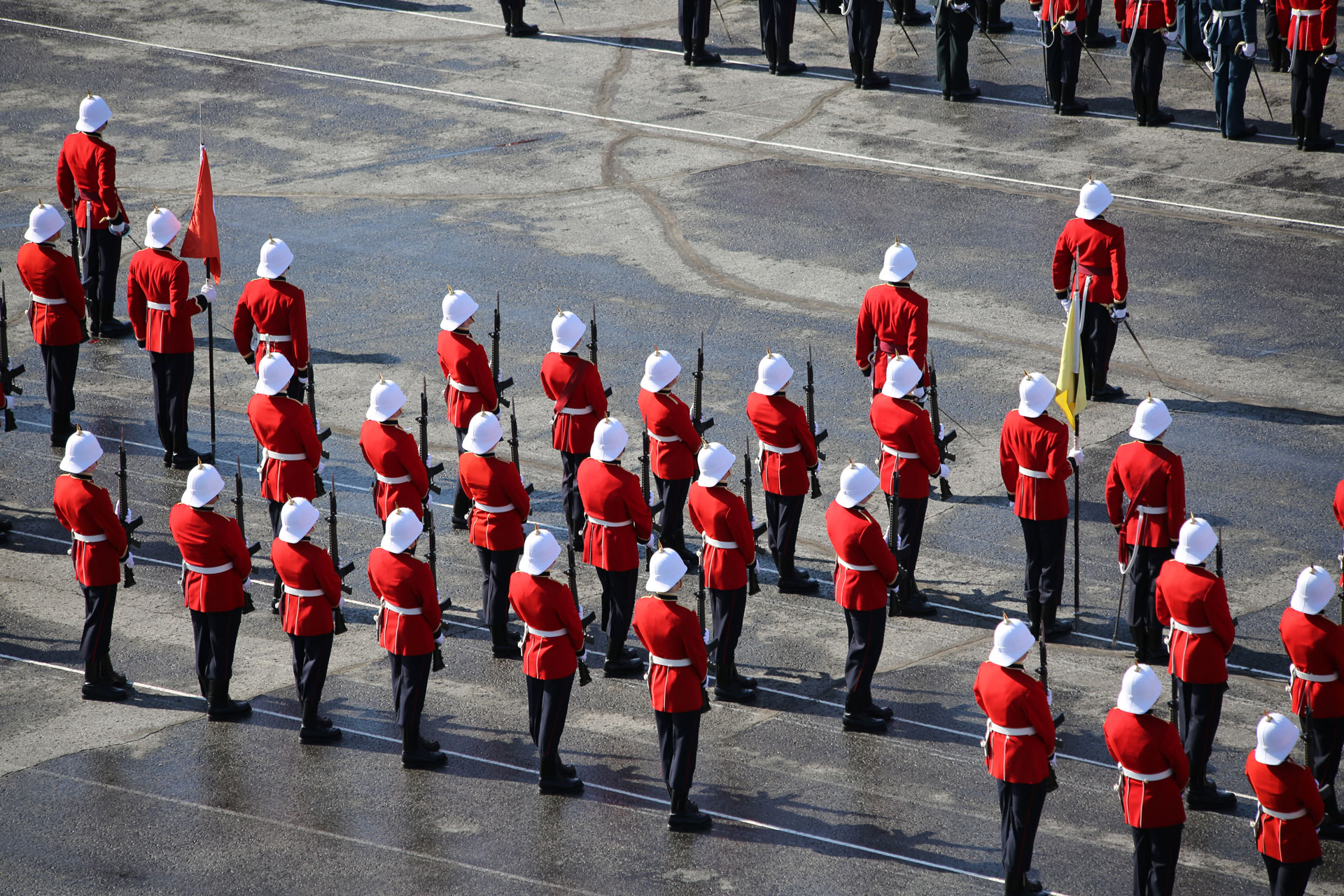
Who am I?
By E3161 Victoria Edwards (RMC ‘03)
- He was born on May 28, 1930 in Calgary, Alta. As a member of the Sea Cadets from age twelve, it seemed natural to attend Royal Roads which had just become (1948) a tri-service college. At the time, French, as a language was not required at Royal Roads; Spanish was the “in” discipline.
- In 1950, he was posted to H.M.C.S. Ontario as a midshipman in the first graduating class not to be sent to the Royal Navy for training.
- As a Sub-lieutenant, he attended courses at Royal Naval College, Greenwich followed by nine months at Portsmouth.
- He returned to Canada and in 1953 joined H.M.C.S. Sioux (destroyer). H.M.C.S. Sioux sailed to Korea in 1954; after the truce, H.M.C.S. Sioux was the only Canadian ship in Korea.
- He served as navigating officer in the Far East.
- He was one of 12 Commonwealth officers sent on the long navigation course in England where he studied radar and action information.
- After serving as navigating officer for the 1st Canadian Escort Squadron (all wartime destroyers), he returned to England for additional training.
- During the earliest helicopter operations, he was posted to H.M.C.S. Annapolis II.
- He was promoted to commander, naval intelligence, in an integrated headquarters. Although he felt that integration had few adverse effects and some advantages, unification was a different matter.
- He was appointed to command H.M.C.S. St. Croix II (destroyer) for an extended period of thirty-nine months.
- Upon promotion to Captain(N), he was sent to a NATO appointment at Supreme Allied Command, Atlantic in Norfolk, Va.
- In command of H.M.C.S. Preserver II (support ship), he was almost constantly at sea.
- A career naval officer should be extremely careful in the choice of a wife because of the frequent strain of absences and of moving. He calls it the “Ruth syndrome: whither thou goest, I will go”. He was very fortunate in this regard. He recommends choosing a wife from a naval family. He describes the current situation, in which young wives often have a career ambition, as particularly difficult. Promoted to commodore, the first flag officer level he served as chief of staff to the Admiral in Halifax.
- As naval attache in Washington, he liaised with the United States Navy on training and equipment.
- He participated in an oral interview about his naval recollection by Rich Aylward in 1986.
a) 2928 Mr James (Jim) M. Cumming (RRMC 1948)
b) 2892 Mr Pete M. Stiles (RRMC 1948)
c) 2914 Mr Gordon C. McCaffrey (RRMC 1948)
d) 2926 Mr George G. Wisener (RRMC 1948)
Answer: a) 2928 Commodore (ret’d) James Malcolm Cumming (RRMC 1952)
